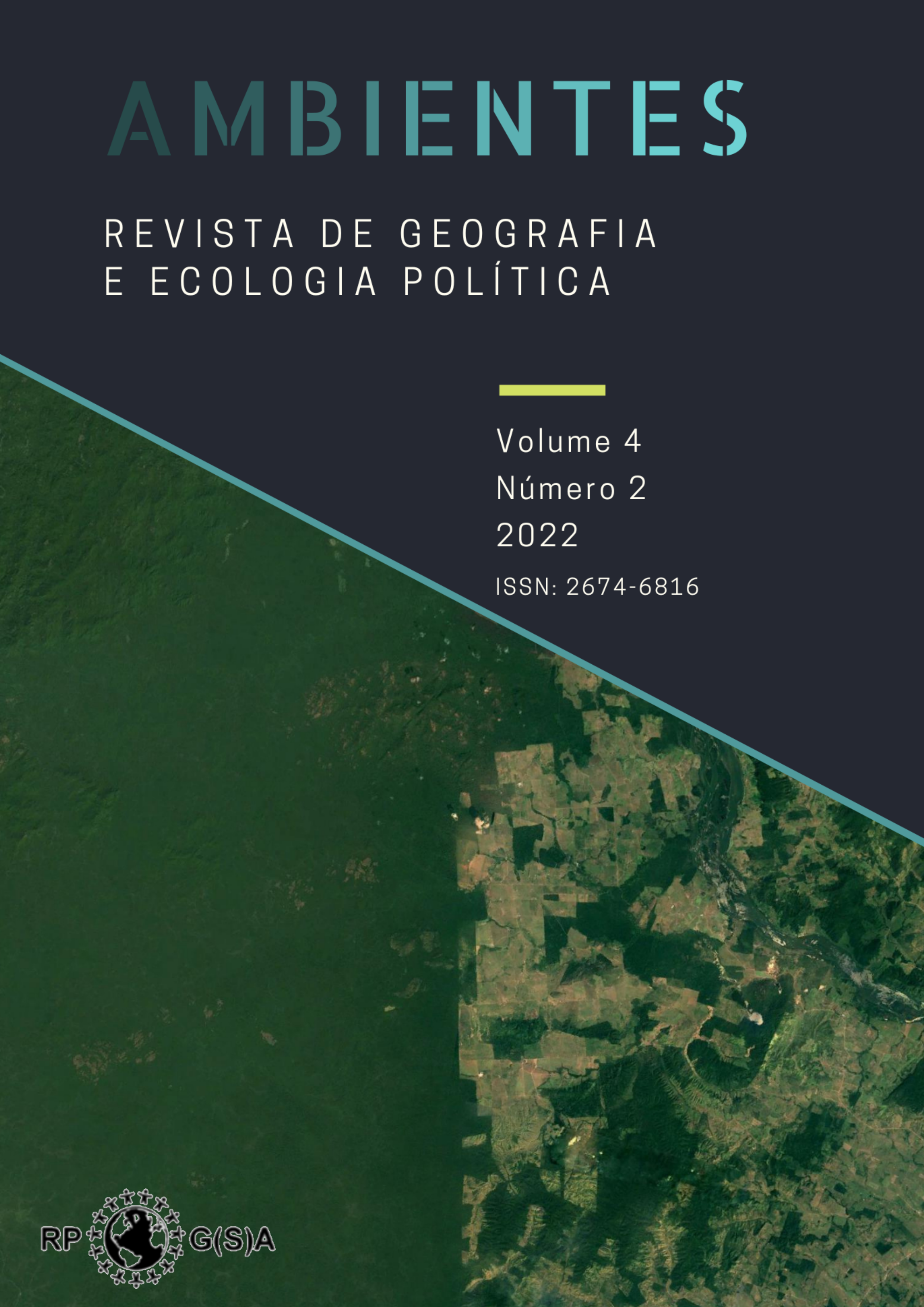Water conflicts in the Amazon: The case of the indigenous people Yudjá and the Belo Monte Hydroelectric Power Plant
DOI:
https://doi.org/10.48075/amb.v4i2.29976Abstract
Conflicts are objects of study of geographic knowledge and arise for several reasons. They can result from tensions that occur at a given moment in geographic space. Conflicts over water are increasing worldwide, including in the Amazon despite the abundance of water in this ecosystem. The Amazon has always been occupied by indigenous and traditional peoples who use the forest to meet their needs. But their ways of life, rites and customs often confront projects that seek another form of appropriation of water from the Amazon basin. The result is the threat of extinction of peoples, who are prevented from maintaining their traditional customs. This situation occurs on the Volta Grande of the Xingu River, which was directly affected by the construction of the Belo Monte Hydroelectric Power Plant. The damming of the water made the river unknown to the Yudjá people, since the hydrographic oscillations of the past were altered. The river has become unknown because it does not equally offer the fundamental environmental services for the reproduction of the people's way of existing. The fish are no longer present as before and the floods and ebbs have also changed. This article aims to support discussions on conflict, especially those involving water, through an analysis of the conflict generated between the original Yudjá people and the installation of the Belo Monte Hydroelectric Power Plant. The methodology used is documental and bibliographical analysis. The research revealed that the reduction of water volumes compromised the way of life of an original people. The tensions that resulted from the appropriation of water have not yet been resolved and may increase the environmental injustice caused by the imposition of a use of water, that is, the generation of energy, superimposing it on the traditional practices of the Yudjá people.
Keywords: Water-conflict; Yudjá; Belo Monte Hydroelectric Power Plant.
Downloads
Published
How to Cite
Issue
Section
License

This work is licensed under a Creative Commons Attribution-NonCommercial-ShareAlike 4.0 International License.
Aviso de Direito Autoral Creative Commons
Política para Periódicos de Acesso Livre
Autores que publicam nesta revista concordam com os seguintes termos:
1. Autores mantém os direitos autorais e concedem à revista o direito de primeira publicação, com o trabalho simultaneamente licenciado sob a Licença Creative Commons Attribution que permite o compartilhamento do trabalho com reconhecimento da autoria e publicação inicial nesta revista.2. Autores têm autorização para assumir contratos adicionais separadamente, para distribuição não-exclusiva da versão do trabalho publicada nesta revista (ex.: publicar em repositório institucional ou como capítulo de livro), com reconhecimento de autoria e publicação inicial nesta revista.
3. Autores têm permissão e são estimulados a publicar e distribuir seu trabalho online (ex.: em repositórios institucionais ou na sua página pessoal) a qualquer ponto antes ou durante o processo editorial, já que isso pode gerar alterações produtivas, bem como aumentar o impacto e a citação do trabalho publicado (Veja O Efeito do Acesso Livre).
Licença Creative Commons
Esta obra está licenciada com uma Licença Creative Commons Atribuição-NãoComercial-CompartilhaIgual 4.0 Internacional, o que permite compartilhar, copiar, distribuir, exibir, reproduzir, a totalidade ou partes desde que não tenha objetivo comercial e sejam citados os autores e a fonte.


